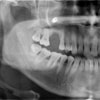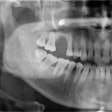
With a better understanding of the oral-systemic link, reorienting dental education to better integrate dentistry into primary healthcare could lead to better health outcomes. The study was published in the Journal of Dentistry.
Shifting from mainly evaluating competencies to prioritizing entrustable professional activities (EPAs), like core observable activities of a profession, could boost dental education. This change might encourage future dentists to take on broader responsibilities as primary care providers, according to the study.
"Educating the next generation of dentists to fully function as primary health care providers will require a focus on curricular change," wrote the authors, led by Dr. Mark Latte, dean emeritus and professor of general dentistry at the Creighton University School of Dentistry (J Dent, April 2, 2024, Vol. 145, 104976).
Dental education is heavily influenced by the Commission on Dental Accreditation (CODA). However, CODA gives each program the freedom to define competency based on its own goals and resources. There is currently no unified agreement on whether to prioritize training dentists for primary care or as collaborative healthcare team members, according to the study.
Achieving patient-centered care involves not only technical proficiency but also effective communication with patients and healthcare team members. However, this requires interdisciplinary collaboration, which is often difficult to achieve within current dental education models, the authors wrote.
In medical education, there's a growing emphasis on using competency-based evaluations to gauge students' readiness for real-world practice. This approach involves assessing tasks relevant to healthcare delivery in authentic workplace settings. One method is through EPAs, which focus on the core activities of a profession rather than specific techniques.
Assessing dental students via EPAs requires changes to the curriculum that will measure skills, including evidence-based dentistry and medicine, ethics, critical thinking, and social responsibility. Using this assessment model in dental education can better encompass a broader view of primary care, recognizing dentists' role not only in managing dental disease but also in diagnosing systemic diseases and promoting overall health, they wrote.
"In the current competency-based system of assessment, there is a scarcity of learning outcomes going beyond foundational and complex knowledge acquisition and the demonstration of technical skills," Latte et al wrote. "The use of EPAs may be a better approach to a more comprehensive strategy around student formation and assessment."




















